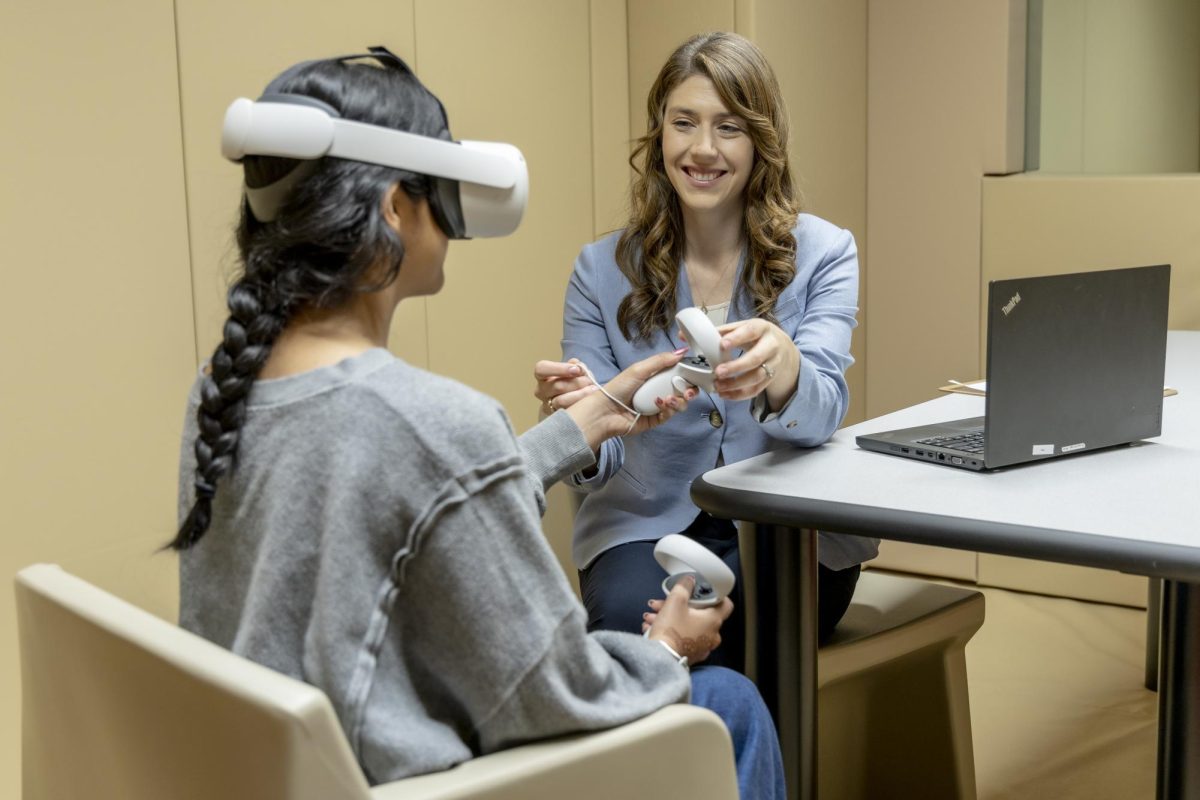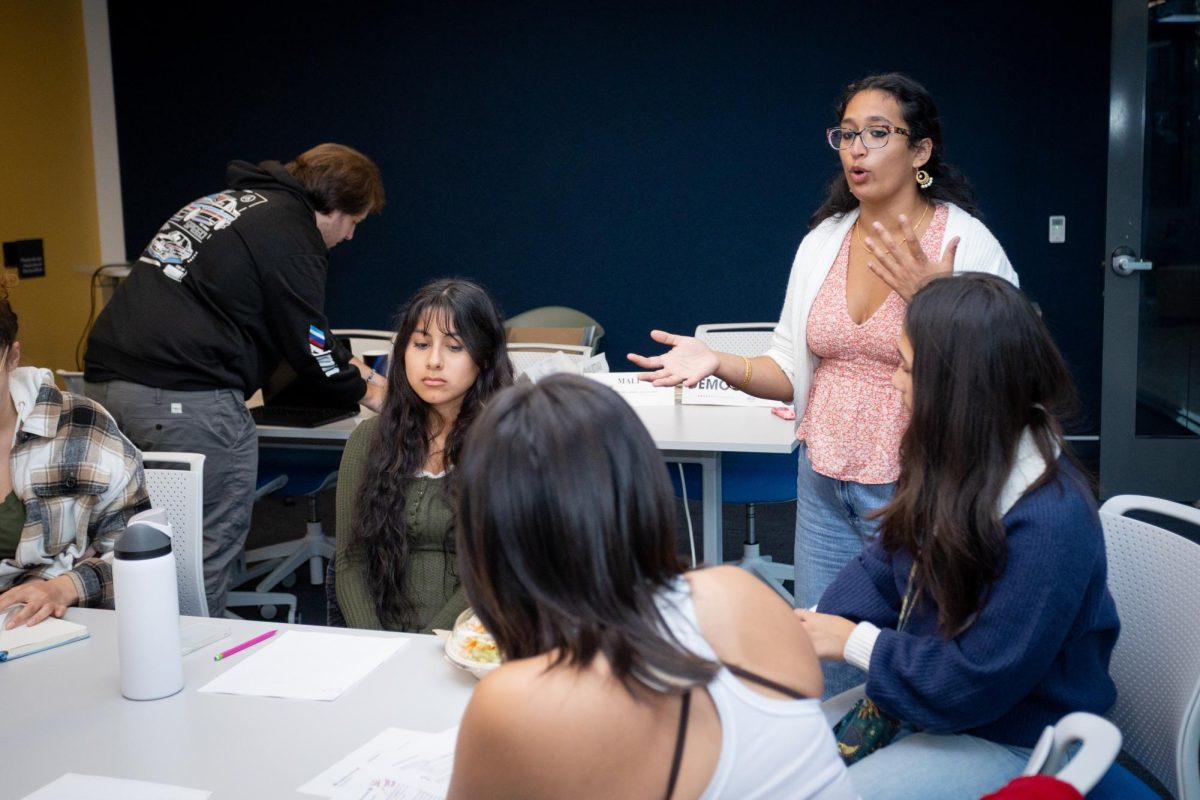The Director of Rowan University’s Center for Behavior Analysis continues to use her passion to help students integrate themselves into psychology research.
An associate professor in the Department of Psychology, Dr. Christina Simmons is the one leading charge in research projects surrounding VR training for clinicians and parents who interact with children on the autism spectrum.
“My background is both as a psychologist and a behavior analyst,” said Simmons. “So I have sort of two dual backgrounds that I kind of merged together in my clinical work and in my research.”
Dr. Simmons, who is in her eighth year teaching on Rowan’s campus, always wanted to pursue a career in psychology, which started in her undergrad at Syracuse. It was not long until she knew helping neurodivergent children was in her future after reading the book, “The Curious Incident of the Dog in the Night-Time,” by Mark Haddon, in her sophomore year of college.
“It was written from the perspective of a young boy with autism, and I was just fascinated by the way that he communicated in this book and just the way that he approached and looked at and saw things in the world and how that was different from a neurotypical perspective,” said Simmons. “So I wanted to find out more.”
After an experience working alongside a 13-year-old with autism, Simmons met with her advisor who recommended she look into behavior analysis. This was the evidence-based approach that was being searched for by Simmons.
“It really clicked for me that challenging behaviors had a purpose for this individual that I was working with and many other individuals, that challenging behavior is a form of communication,” said Simmons.
Simmons had the opportunity to live in Spain for a year after leaving her undergrad, where she taught at a bilingual school while also conducting more autism research. Following this experience, she returned to the United States, went to the University of Georgia, and pursued her master’s and PhD in school psychology.
Now working at Rowan University, Simmons feels right where she belongs.
“It seemed that Rowan was a growing university, growing in their research, growing in their kind of supports and resources for students. So it seemed like an exciting place to be able to establish clinical work,” said Simmons, when explaining why she wanted to work at the university. “It seemed like there was a need in South Jersey for that clinical work…and it seemed like the place where I can merge all of my interests.”
Having a multitude of resources available at Rowan, Simmons is simultaneously utilizing two grants to support her research efforts in virtual reality training, with one coming from the New Jersey Department of Health to help train behavior technicians and the most recent grant from the National Institutes of Health (NIH) for parent training.
“I think what we’ve seen is that parents are really open. They’re willing to try,” said Simmons.
According to Simmons, VR training allows parents to customize their avatars in a way that resembles their child and their behaviors to help create an understanding of how to manage specific situations.
“I think one of the benefits of VR is that for one parent who gets something really quickly, they can move on, they can progress quickly. Another one might need more help and more feedback, and what I love about it is that we get on the backend, all of the data of their practices,” said Simmons.
To maximize the potential benefit of the NIH R15 grant, Simmons allows undergraduate psychology students to make their mark on the project.
“Part of the mission of this three-year grant project is to involve students in all aspects of the research process,” said Simmons. “They’re going to be the ones who are delivering some of those behavioral treatment services to clients, working with parents, [and] working on presenting our research.”
To Simmons, the research being conducted goes beyond its essential purpose: sharing her passion with students.
“Every client and every family that you serve, I think it’s that ability to see how you’ve changed that individual’s life in a meaningful way,” said Simmons. “I love clinical work, but I think I enjoy it even more when I get to watch others implement those skills, to see my students work with the clients.”
For comments/questions about this story DM us on Instagram @thewhitatrowan or email [email protected]



































































































































































































